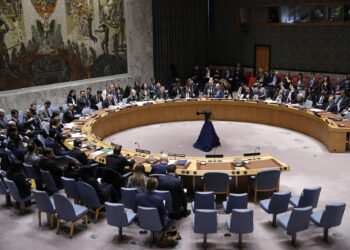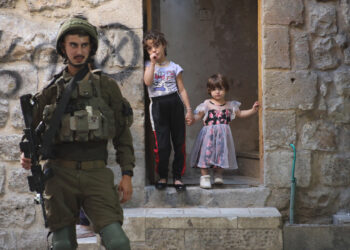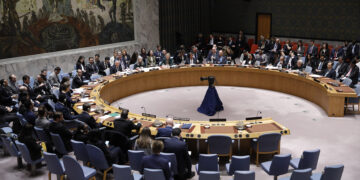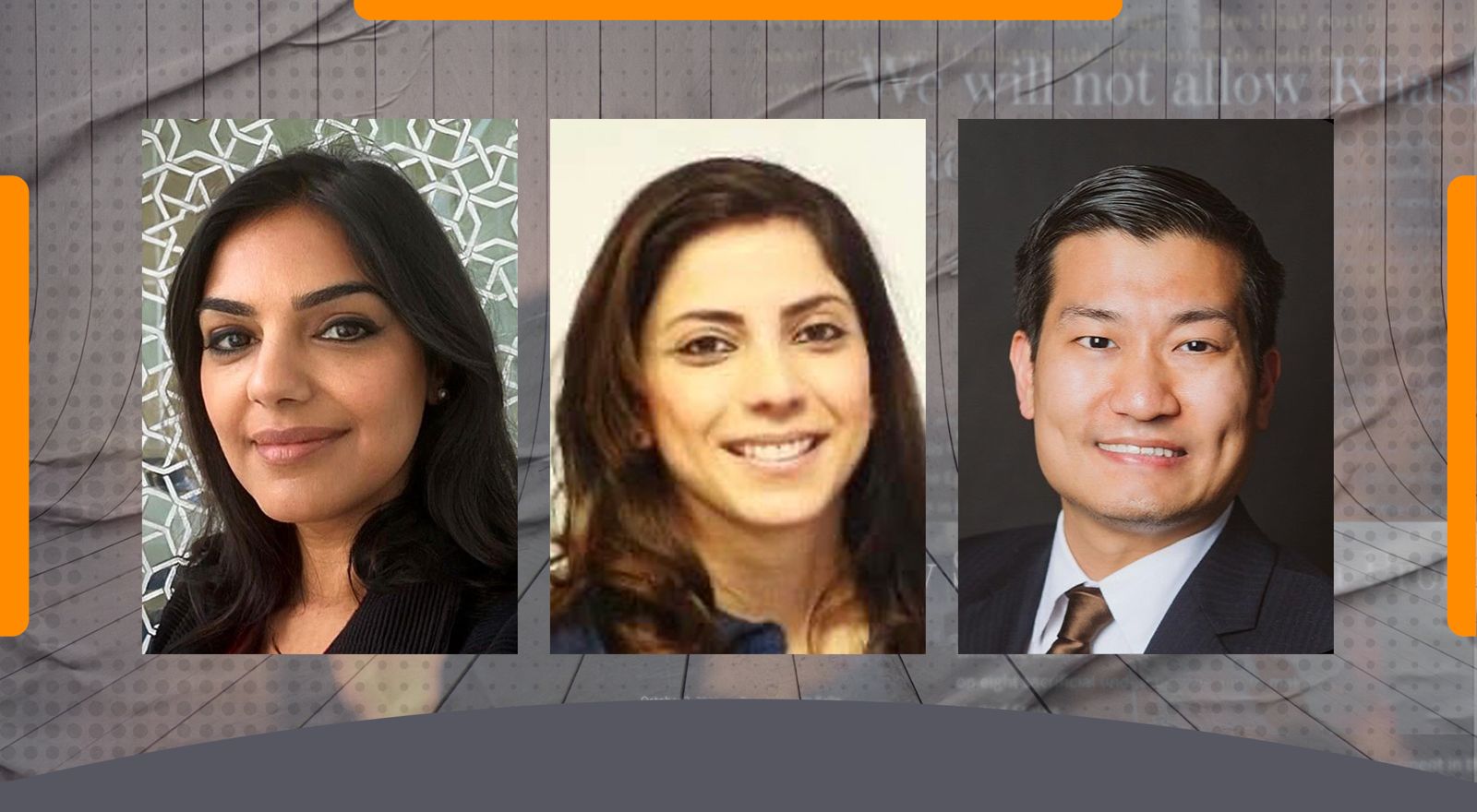Tom Pollitt is a British journalist specializing in the MENA region. He is currently based in Cairo, Egypt.
"Perhaps the hardest thing was seeing some of the children suffering from things that could be curable and not having the medications to help them," says Amy Low, a medical team leader for Médecins sans Frontières (MSF), also known as Doctors Without Borders, reflecting on her recent stint in Gaza, where the death toll from Israel's devastating war now exceeds 40,000 Palestinians. More than 70 percent of those killed are estimated to have been women and children. At least half of the buildings in Gaza are in ruins. The injured face horrific conditions given how much of Gaza's health-care infrastructure has been destroyed.
Aid workers and medical personnel, both Palestinian and international, are also in the firing line. Despite a ruling by the International Court of Justice in March ordering Israel to allow more medical aid and food into Gaza to avert famine, Israel has been accused by human rights groups of blocking and even destroying aid to prevent it from reaching Gaza.
Low has seen first hand the desolation wrought by the lack of medical supplies and food in Gaza, primarily in her work at Nasser Medical Complex in Khan Yunis, in the south of the Gaza Strip—"the last functional hospital in the area," as she described it. Because of Israel's ongoing bombardment of Gaza and chronic shortages of basic medical supplies, including even soap, only 16 of Gaza's 36 hospitals are even partially functioning, according to the World Health Organization. But every day, there are more injured Palestinians to treat, while hunger and outbreaks of disease, now including polio, add to the humanitarian catastrophe.
Low spoke to Democracy in Exile about what she saw at Nasser Hospital, how doctors and medical staff cope, and what Palestinians must endure. Currently at home in Canada, she expects to return to Gaza early next year to join her MSF team again.
The following transcript has been edited lightly for length and clarity.
"Perhaps the hardest thing was seeing some of the children suffering from things that could be curable and not having the medications to help them."
- Amy Low
What work were you doing at Nasser Hospital?
I was a medical team leader for MSF at Nasser Medical Complex for maternity and pediatrics. Nasser Hospital is one of the last tertiary functional hospitals in the whole Gaza Strip. In the facility we had: a pediatric department, an emergency room, a neonatal intensive care unit, a pediatric intensive care unit, and a malnutrition ward. The pediatrics department had deliveries, births, prenatal care, antenatal care, postnatal care, as well as labor delivery rooms, a ward for gynecological complications, miscarriages, and two operating rooms in which we did C-sections.
How did the shortage of medical aid affect your work at the hospital?
As the last functional hospital in the area, it was really overcrowded. There was definitely not enough space for the amount of people that were admitted to the hospital. When I arrived, the pediatric department was at a 200-percent bed capacity rate, and through some of the weeks in July, that capacity went up to over 312 percent. This means it was three babies per bed—not the best conditions for children to get well. On top of the overcrowding, there was a lack of hygiene materials.
We did add more beds when we could. The last week that I was there, we went from 56 beds to 71, so that did reduce the bed occupancy rate. But it was still at about 150-percent capacity when I left.
With the lack of supplies, you had to start triaging and prioritizing what you would do, and the standards of care just kept getting lower and lower. For example, we have the five moments of hand hygiene [when health workers should wash or sanitize their hands, per the World Health Organization], but we ran out of hand sanitizer. Therefore you couldn't wash your hands all five times. So we had to pick the most critical times and hope for the best. This was what it was like to work there. We also didn't have a lot of the medications that we needed, or bandage and gauze.
Perhaps the hardest thing was seeing some of the children suffering from things that could be curable and not having the medications to help them. That's also a feeling of impotence that we have.
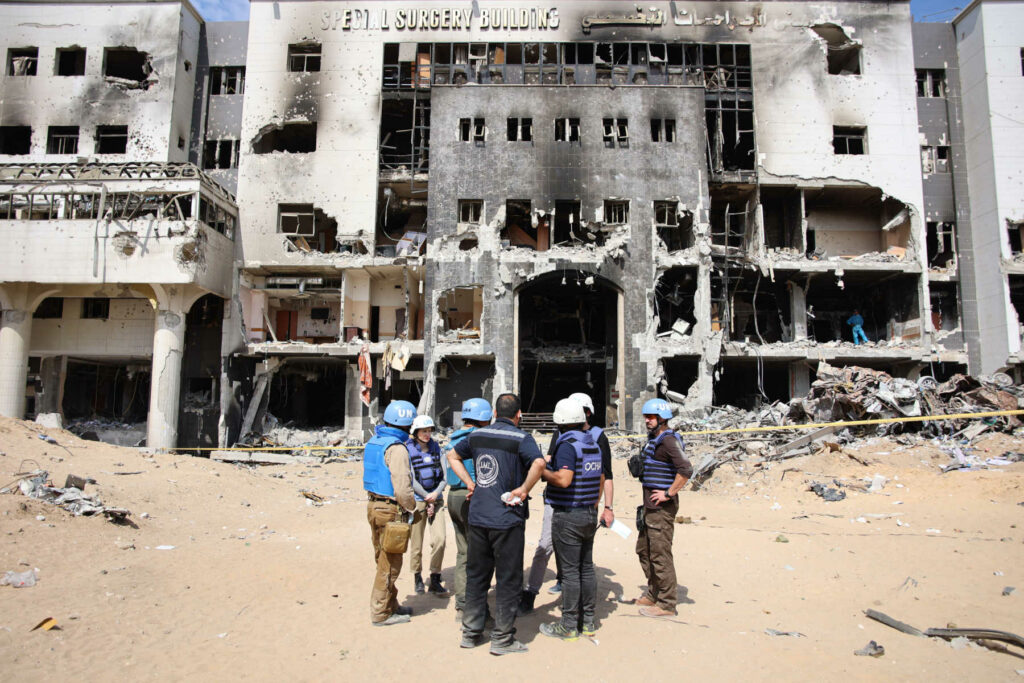
Towards the end, a lot of supplies hadn't come in since the Rafah invasion in May. So we were already running on our backup stock, and by the end of July, that backup stock was drying up. We even ran out of soap. It's hard to keep a hospital clean without any soap, which leads to more infections, a lack of hand hygiene. In general, the work conditions were very difficult. The staff did the best they could with what they had.
For the labor and delivery ward, at the end of June, you could see there were quite a large number of women delivering at Nasser. I think that was mainly because it was one of the last remaining large hospitals available. In July, it had been nine months since the beginning of the war, so we did see a sharp decrease in the number of deliveries at the ward. And slowly as well, looking at the data, we saw an increase in miscarriages. Because of the lack of proper conditions to be pregnant, such as malnutrition, a lot of women were miscarrying before the due date.
Were there times that were even harder than others?
We would have mass casualty events where there would be a huge influx of injured people to the hospital, either because of an attack or because the population would receive evacuation orders and try to evacuate from their houses to where we were, but sometimes not in time.
In these situations, the hospital is already over capacity and then you have to deal with this influx of injured people, which makes it even harder because there's no space for them. You have these huge numbers of injured people who you can't treat. Even in normal circumstances, you would be under stress, and now your hospital is not functioning properly.
You kind of bandage them up and hope for a space in the operating room. The hospital is not built for that. I mean, no hospital is built for that—having 100 injured people arrive in the span of two or three hours. No hospital can cope with the volume of surgeries that are needed.
There were patients who, for example, had a broken leg or an open fracture wound, during a mass casualty event. In normal circumstances, this would be treated immediately, but during such an event we would have to leave it. If the hospital is overwhelmed, they don't have space for you, and your condition just deteriorates as you wait for your surgery. Sometimes, you won't survive.
Did the lack of food supplies and other issues also exacerbate the problems you faced?
One of the worst parts was seeing some children suffer from things that they'd never had before. Malnutrition never existed in Gaza before this war. Seeing children who are malnourished, who otherwise would have been healthy, if not for the war, was difficult. It was also hard to see the parents suffering, saying that they wish they could give something better for their children.
We are all health care professionals. We all see these types of patients with injuries and wounds and very difficult conditions, as well as end of life care. But it is harder there than usual because you know that in other circumstances, many of our patients would have survived.
"One of the hardest things was the staff we worked with who have to live through this war every single day, and who have no escape."
- Amy Low
What are some of the stories of individuals that stand out in your memory?
There was one story in particular—I remember I was in one of these mass casualty events where there was just an influx of wounded who came in. I was doing the round of the emergency room and there was a little girl who was there all alone, probably around three years old; we managed to save her. She had a chest tube in her lungs, draining out the fluid, she was breathing, but she was all alone. And then suddenly her mother came. Her mother was obviously already in a panic and then going through every single emergency room and department possible to try to find her daughter. And when she finally found her daughter who had the chest tube in, she just screamed. You know, like the scream of a sigh of relief. Then she started to get down on our knees and pray to God and started crying with what I assume was relief, but it is just this outpouring of emotion.
But what is her life going to be afterwards? Seeing that real emotion in front of your face has a huge effect. You see it on TV, and you might even see it in movies. But to have it in front of your face, to see this woman cry with relief but also with horror that her child has a tube in her chest and is barely alive—that was a very emotional moment for me and is part of being witness to what these people are suffering.
How would you describe the knock-on effect of the situation in the hospitals in Gaza? How does it affect not only the patients, but also their families and whole communities?
Something I saw on a regular basis, more or less daily, was children who needed evacuation out of Gaza to get treatment and they weren't able to get it. Mothers would always plead with me if MSF could do something. We never could because movement of people in and out of Gaza is very difficult. Those are difficult conversations that we have to have with the families about what the role of MSF is and what are the limits of what we can really do for them.
During one of the first mass casualty events, we had this little boy with his father. His father had a relatively superficial wound on his back. But the little boy was just sitting next to his father and just kind of looking bewildered. I'm not sure if he knew that his mothers and sisters and everyone else had died, and it was just him and daddy from now on.
Then there was a woman of about 19 or 20 who came in with a fractured leg; she was in pain. When her mother finally came in, she wept tears of joy. Her mother was also overjoyed, but also in shock—so happy to see her child alive, but not wanting to tell her daughter, who needs femur surgery, that the rest of the family is dead. It must be so hard for a mother to see her daughter that's alive and be so happy for that, but then at the same time not knowing when to tell her daughter that her brothers and her father are dead.
There was another similar situation with a woman in the department, seeing her husband and her husband seeming so happy to see her, but then also just completely devastated as well. What are they going to do now if this war drags on? That woman again has some internal injury that needs a lot of surgeries or rehabilitation.
These are patient stories, which are quite impactful. But also, I think for me, one of the hardest things was the staff we worked with who have to live through this war every single day, and who have no escape. Those stories were touching because I know these people, I work with them and they tell me about their lives, how they have to go home to a tent and have to go get water and hope that the children are still at home when they get there. Some told me that when they got home, the children were crying because they didn't know if mommy was going to come back that day because there were airstrikes.
They live in such fear and uncertainty. These are their real lives that they're living every day. I see them as resilience and strength, but I also know that they're suffering a lot. I'm not a politician or military expert. I'm just seeing what I see each day, which is human suffering and, as a human, you just want that to stop.













